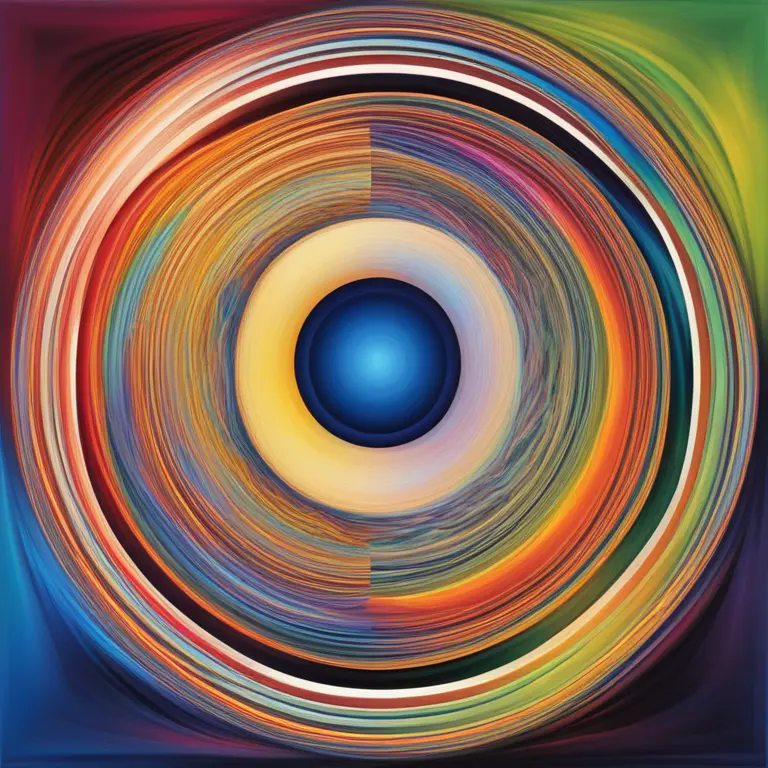
The Accuracy of Biorhythm Compatibility: A Modern Analysis
Delve into the credibility of biorhythm compatibility in forming and examining relationship dynamics in contemporary times.
article by Adrian Wallace
Introduction to Biorhythm Compatibility
In an age where science and mysticism often cross paths, biorhythm compatibility remains a curious topic for individuals seeking to understand the rhythmic patterns of their lives and relationships. Originating from a pseudoscientific concept that proposes daily physiological cycles affect our capabilities, this method has been utilized to evaluate potential harmonies or discord between individuals. As we progress into 2024, it’s essential to reflect on whether these cycles truly influence compatibility or if they merely offer a placebo of understanding in the complex puzzle of human relationships.

Evaluating Biorhythm Theories
Biorhythms are said to be based on three essential cycles: the Physical, Emotional, and Intellectual, with each following a specific number of days—23, 28, and 33, respectively. Proponents argue that calculating these cycles can predict different aspects of human behavior and compatibility. However, as we scrutinize the accuracy of biorhythm compatibility, we face a scientific community that largely discredits its legitimacy due to a lack of empirical evidence. But does this skepticism render the practice obsolete, or is there more to the theory deserving of a modern reappraisal?
The Science Versus the Belief
In the debate over biorhythm compatibility, it is vital to distinguish between hard science and belief systems. While the former relies on testable and reproducible data, the latter is rooted in individual experience and faith. No substantial scientific studies as of 2024 or before have concluded that biorhythms impact relationship outcomes effectively. Yet, despite this, the belief in biorhythms persists, indicating a human desire to find patterns and predictability in life's chaos—a longing that science does not always satisfy.
Technological Advancements and Accuracy
As technology advances, so do the methods of calculating and interpreting biorhythms. Modern apps and software promise greater precision in biorhythm charts, offering intricate reports that claim to decipher compatibility nuances. While these tools may give a sense of personalized insight, the question remains: does the increased sophistication of technology inherently validate the premise of biorhythm compatibility, or does it merely enhance the illusion of accuracy?
Critiques and Counterarguments
Critiques of biorhythm compatibility often focus on its inability to replicate results across different situations, a cornerstone of the scientific method. Without consistent outcomes, the reliability of biorhythms as a tool for gauging compatibility remains contentious. Nonetheless, some enthusiasts counterargue that the unique subjectivity and complexities of human relationships might escape rigid scientific capture, suggesting a realm where biorhythms could potentially offer insights, even if not scientifically verifiable.
Skeptics vs. Practitioners: A Middle Ground?
The gulf between skeptics and practitioners of biorhythm compatibility is wide, but perhaps there's a middle ground. With an open mind without discarding scientific rationality, one can view biorhythms as a conceptual framework to initiate conversations about personal and relational awareness—psychoanalytic tools rather than predictive ones. In this way, biorhythms might contribute to personal growth and understanding, irrespective of their empirical accuracy.
Published: 1/30/2024
Modified: 1/30/2024
More predictions
Come back here soon to learn more about yourself and your future


The Reality of Biorhythms: Myth or Science?
Delve into the scientific stance on biorhythms and discover whether there's evidence backing up this intriguing concept.


The Essential Guide to Your Biorhythm Calendar
Discover the science of your body's natural rhythms and learn how to track your personal biorhythm calendar for enhanced well-being.


Biorhythm Calendar: Your Personal Cycle Guide
Delve into the personalized world of biorhythms to comprehend your physical, emotional, and intellectual cycles for a harmonized life.